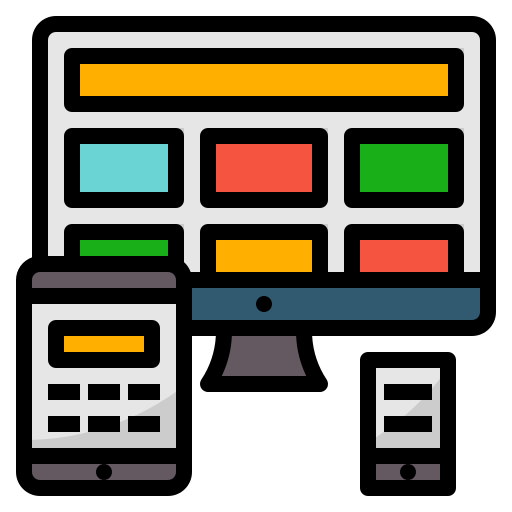Mobile Applications Development
Mobile application development is the process of creating
software applications that run on a mobile device, and a typical mobile application utilizes
a network connection to work with remote computing resources. Hence, the mobile development
process involves creating installable software bundles (code, binaries, assets, etc.) ,
implementing backend services such as data access with an API, and testing the application
on target devices.
There are two dominant platforms in the modern smartphone
market. One is the iOS platform from Apple Inc. The iOS platform is the operating system
that powers Apple's popular line of iPhone smartphones. The second is Android from Google.
The Android operating system is used not only by Google devices but also by many other OEMs
to built their own smartphones and other smart devices.
Although there are some similarities between these two
platforms when building applications,
developing for iOS vs. developing for Android involves using different software development
kits (SDKs) and different development toolchain. While Apple uses iOS exclusively for its
own devices, Google makes Android available to other companies provided they meet specific
requirements such as including certain Google applications on the devices they ship.
Benefits of Mobile Applications Development
- The ease and convenience of accessing and sharing business based as well as personal information—from anywhere and at anytime.
- Fast replacement of conventional and simple built-for-purpose devices and services.
- Reliability and high speed.
- Greater and affordable access to a vast repository of information like e-catalogues, videos, media files and other online facilities.
- Enhanced end-user experiences.
Mobile Applications Services

Native Applications
A native mobile app is a smartphone
application that is coded in a specific programming language, such as
Objective C for iOS or Java for Android operating systems. Native mobile
apps provide fast performance and a high degree of reliability.

Cross-Platform Applications
Cross-platform development points to the
process of creating an app that works on several platforms. This is done
by using tools like React Native, Xamarin, and Flutter, where the apps
created can be deployed on both Android and iOS.

Hybrid mobile applications
Hybrid mobile applications are built with
standard web technologies - such as JavaScript, CSS, and HTML5 - and they
are bundled as app installation packages. Contrary to the native apps,
hybrid apps work on a 'web container' which provides a browser runtime.

Progressive Web Applications
PWAs offer an alternative approach to
traditional mobile app development by skipping app store delivery and
app installations. PWAs are web applications that utilize a set of
browser capabilities such as working offline, running a background
process and adding a link to the device home screen to provide an
'app like' user experience












